Living Politics in South Africas Urban Shacklands
Living Politics in South Africas Urban Shacklands
KERRY RYAN CHANCE
The University of Chicago Press
CHICAGO & LONDON
The University of Chicago Press, Chicago 60637
The University of Chicago Press, Ltd., London
2018 by The University of Chicago
All rights reserved. No part of this book may be used or reproduced in any manner whatsoever without written permission, except in the case of brief quotations in critical articles and reviews. For more information, contact the University of Chicago Press, 1427 E. 60th St., Chicago, IL 60637.
Published 2018
Printed in the United States of America
27 26 25 24 23 22 21 20 19 18 1 2 3 4 5
ISBN-13 : 978-0-226-51952-4 (cloth)
ISBN-13 : 978-0-226-51966-1 (paper)
ISBN-13 : 978-0-226-51983-8 (e-book)
DOI : 10.7208/chicago/9780226519838.001.0001
Library of Congress Cataloging-in-Publication Data
Names: Chance, Kerry Ryan, author.
Title: Living politics in South Africas urban shacklands / Kerry Ryan Chance.
Description: Chicago ; London : The University of Chicago Press, 2018. | Includes bibliographical references and index.
Identifiers: LCCN 2017039629 | ISBN 9780226519524 (cloth : alk. paper) | ISBN 9780226519661 (pbk. : alk. paper) | ISBN 9780226519838 (e-book)
Subjects: LCSH : Urban poorPolitical activitySouth Africa. | SquattersPolitical activitySouth Africa. | Political activistsSouth Africa. | Abahlali BaseMjondolo (Organization) | Environmental degradationPolitical aspectsSouth Africa. | Squatter settlementsSouth Africa. | Community organizationSouth Africa. | South AfricaPolitics and government1994
Classification: LCC HV 4162. A 5 C 43 2018 | DDC 322.40968dc23
LC record available at https://lccn.loc.gov/2017039629

This paper meets the requirements of ansi/niso z39.48-1992 (Permanence of Paper).
Contents
I recall driving past the building site for a gated community nestled between the mountains and the wealthy, largely white South African suburb of Somerset West. In the early 2000s, billboards, advertisements, and news reports lauded this and similar projects as the innovative answer to safe, luxury housing in Cape Town. I had visited the same site two years earlier, while assisting a local anthropologist, and got a glimpse of what lay beneath the clean suburban landscape. At the time, the site was a fifteen-year-old shack settlement. When we visited, the community was in the process of tearing down their homes. Families ripped out the nails that held together scrap metal roofs, shucked off the wood that formed interior walls, and threw what could be burned into a rising fire. The new owner of the land, after a protracted legal battle with the settlements residents, had issued an ultimatum reminiscent of old apartheid days: clear the way for the gated community or be forcibly removed.
I spent time with an outspoken community leader, a woman who told me that, despite the well-meaning efforts of some state agents, development experts, and lawyers, outsiders could not understand what was happening to her community beyond the brute fact of relocation. Only by virtue of living there and knowing the people and their history could anyone begin to understand what they were undertaking. Shes a trustworthy neighbor, the woman said of the anthropologist, She listens to our troubles when no one else will. Acting as a trustworthy neighbor, indeed, as an anthropologist, showed me the possibility latent within this complicated form of listening. In my own research, I sought to train my ear, in a sense: my time in South Africa had already taught me that what we hear is shaped by our time and place in the world.
I began living in South Africa in June 2001, seven years after the fall of apartheid. It was still the honeymoon period of the new democracy. At that time, the euphoric optimism about either a revolutionary redistributive state or the rainbow nationbuilt on an ostensible reconciliation between white minority rulers and black liberation movementshad only started to wane. In the early 2000s, I spoke with workers who said unions were being rendered toothless by the power-sharing alliance with the ruling African National Congress (ANC). Yet they said they would vote for their ruling party until they died. Residents of council housing in race-based townships told me that their water was being disconnected amid aggressive cost-recovery experiments instituted under ideological pressure from the World Bank. Even so, they questioned the value of supporting comparatively weak opposition parties, doubting that their votes at the ballot box could serve as a protest against international institutions half a world away.
HIV-positive activists I knew viewed government inaction in the face of a mounting death toll as signaling a necessary return to civil disobedience. However, nearly all had faith that they could sway recalcitrant politicians and even multinational corporations to make antiretroviral medicine accessible to the poorest of the poor. Shack dwellers, who had spent their lives on a parcel of land in the city or who had moved from rural areas after the fall of apartheid, found themselves under threat of eviction and counted among the unemployed. Against the odds, they assured me that the promise of land redistribution and basic income would be fulfilled in their childrens lifetimes, if not their own. Migrants and refugees who had been burned out of their homes and shops by neighbors told me that they were despondent about getting papers to stay in the country legally, but they continued to view South Africa as the continents inclusive promised land.
From these multiple vantages in the early 2000s, optimismrevolutionary, liberal, or otherwisewas giving way to the imperfect processes that would consolidate South Africa as an actually existing democracy. In this book, I focus on what residents of shack settlements call living politics because it captures some of the complexities and contradictions of these processes. Living politics expresses how residents make their lives viable and secure and grapple with new global forces alongside the legacies of apartheid. Ultimately, living politics is about using everyday materialsfire, water, air, and landto transform what it means to belong as a citizen. My aim in this book, if imperfectly accomplished, is to take advantage of what I feel anthropology, at its core, offers usnamely, an approach to understanding the lives and struggles of people who are commonly talked about but rarely listened to, on the African continent and elsewhere in the Global South. This book represents what residents in townships and shack settlements have taught me.
The research for this book was conducted in South Africa between 2005 and 2015. The project was funded by the Andrew W. Mellon Foundation, the Social Science Research Council, the Wenner-Gren Foundation, the Fulbright Foundation, the W. E. B. Du Bois Institute at Harvard University, the American Council of Learned Societies, the Marcus Garvey Memorial Foundation, and the American Philosophical Society. Along with receiving research support from Louisiana State University, I am grateful for the encouragement of my colleagues, in particular Joyce Marie Jackson, Micha Rahder, and Sunny Yang.
Thanks are due to colleagues at Harvard University, where I was fellow in the Department of Anthropology and at the Hutchins Center for African and African American Research. I owe thanks to Ajantha Subramanian and Vincent Brown, as well as Michael Herzfeld, for their mentorship and comments on manuscript chapters. The project benefited from conversations with Emmanuel K. Akyeampong, Robin Bernstein, Lawrence D. Bobo, Neil Brenner, Glenda Carpio, Steven Caton, Caroline Elkins, Arthur Kleinman, Achille Mbembe, Sally Falk Moore, Marcyliena Morgan, John M. Mugane, and William Julius Wilson. I am grateful to friends in Cambridge who provided critical insights and support: Aziza Ahmed, Hiba Bau-Akar, Naor H. Ben-Yehoyada, Anya Bernstein, Alex Blomendal, Matthew Desmond, Namita Dharia, Nicholas Harkness, Jason Jackson, Peniel Joseph, Anush Kapadia, Sohini Kar, Ju Yon Kim, Julie Kleinman, Doreen Lee, Keerthi Madapusi, Emily Madapusi Pera, Laurie McIntosh, George Mieu, Laurence Ralph, Rebecca Richmond-Cohen, Emily Riehl, Jeremy Schmidt, Brandon Terry, Anand Vaidya, and Dilan Yildirim.


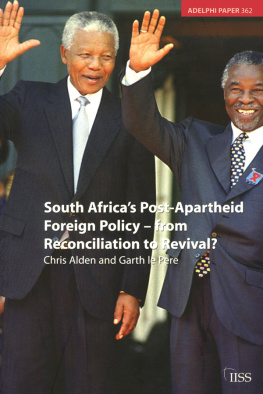
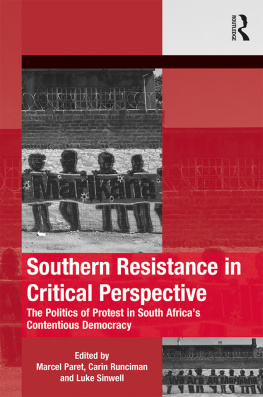
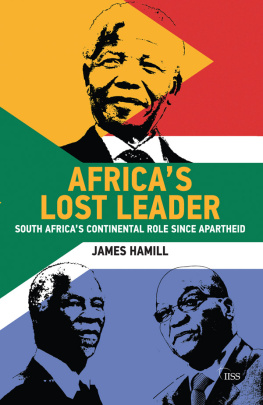

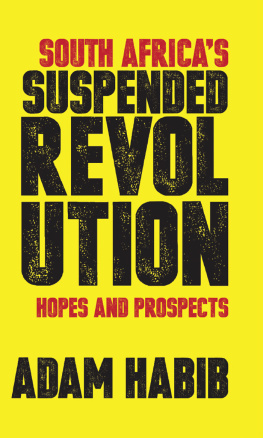
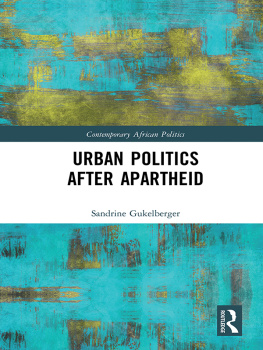
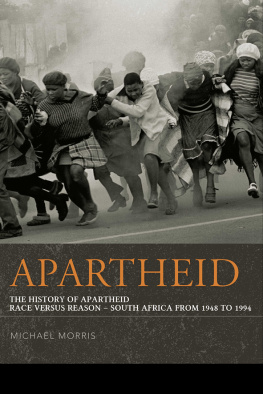
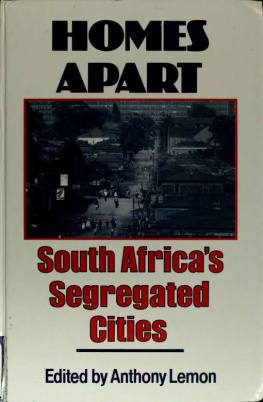

 This paper meets the requirements of ansi/niso z39.48-1992 (Permanence of Paper).
This paper meets the requirements of ansi/niso z39.48-1992 (Permanence of Paper).